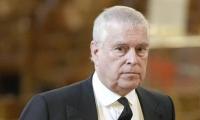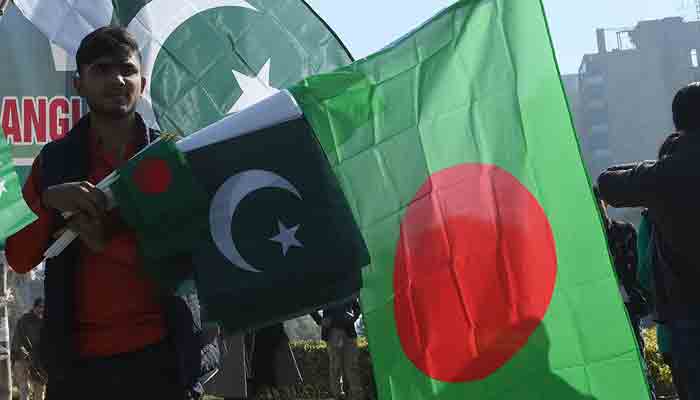Scholars advise Pakistan and Bangladesh to foster good relations
PIIA had organised the conference, titled ‘50 Years Later: The Future of Pakistan-Bangladesh Relations’
At a conference on the anniversary of the Fall of Dhaka on Thursday, scholars from Pakistan and Bangladesh admitted that the tragedy of 1971, steeped in violence and bloodshed, was avoidable and all informed opinions had pleaded for dialogue and a political solution.
However, politicians, historians and analysts from the two sides expressed their conviction that for the future of Pakistan-Bangladesh relations, there were many positive prospects and it was the time to reflect and move forward.
The Pakistan Institute of International Affairs (PIIA) had organised the conference, titled ‘50 Years Later: The Future of Pakistan-Bangladesh Relations’.
Stating the purpose of the conference, PIIA Chairperson Dr Masuma Hasan said that in the last 50 years, much water has flown under the bridges of the Indus and Brahmaputra and the global and regional landscape had also changed, with a multi-polar world, the phenomenal rise and outreach of China, an assertive India, and the continuing role of the United States.
“In the regional context, rising from the ashes, Bangladesh has made remarkable economic progress. Whatever the irritants of the past, the people of the two countries share a common historical identity, strive for the same values of democracy, the rule of law, human rights, and freedom of expression,” she said.
She added that both the countries were members of Saarc and other international organisations and they voted on the same side on many international issues. The keynote address was delivered by former foreign secretary of Pakistan Riaz Khokhar. He said the prime ministers of Bangladesh and Pakistan should visit each other’s countries and ensure that the Pak-Bangladesh relations had a bright future.
“Think tanks in Pakistan and civil society in Bangladesh should work to create cooperation between both the countries and talks at foreign secretaries’ level should also be initiated,” suggested Khokar.
He said Bangladesh was being cited as a successful development model by the world and an economic team of Pakistan should be sent to Bangladesh to learn from their experiences. Besides, he added, both the countries should have student exchange programmes and Pakistan should offer hundreds of scholarships to Bangladeshi students.
“Bangladesh is a very important country. They conceived the South Asian Association for Regional Cooperation [Saarc] in Dhaka in December 1985,” said Khokar. He added that Saarc provided opportunities to leaders to discuss their issues but sadly its conference has been pending since 2016 following tensions between India and Pakistan.
The first session of the conference, titled ‘A Time to Reflect”’, was chaired by Dr Moonis Ahmer, professor of international relations (IR) and former dean at the University of Karachi (KU).
Former KU IR chairperson Prof Syed Sikander Mehdi and former University of Dhaka IR academic Prof M Shahiduzzaman spoke at the session. At the end of the session Dr Ahmer spoke on the need for shifting the paradigm in Pak-Bangladesh relations.
He added that the two countries should be future-oriented, establish air links, and increase bilateral trades. The visit of Bangladeshi Prime Minister Haseena Wajid in 2022 is a great opportunity, Dr Ahmar said as he proposed that she be invited to address a joint session of Parliament in Pakistan and on a visit by PM Imran Khan to Bangladesh, the same courtesy be extended to him.
PIIA member Vice Admiral (retd) Asaf Humayun chaired the second session titled ‘Positive Trends for the Future’. Bangladeshi scholar Dr Rounaq Jahan spoke on 50 years of Bangladesh. Former High Commissioner of Pakistan to Bangladesh Rafiuzzaman Siddiqui delivered a speech on ‘Memories of Bangladesh and its Transformation’.
In his concluding remarks, Humayun said the youth of today had very little connection with Bangladesh. He encouraged the idea of diversity in Pakistani society, saying that not being able to manage diversity was the root cause of the separation.
-
 Bruce Springsteen Makes Strong Political Statement
Bruce Springsteen Makes Strong Political Statement -
 Prince Harry Relationship With King Charles 'not Straightforward,' Says Expert
Prince Harry Relationship With King Charles 'not Straightforward,' Says Expert -
 Truth Behind Jennifer Lopez's 'rude' Glambot Moment Laid Bare
Truth Behind Jennifer Lopez's 'rude' Glambot Moment Laid Bare -
 Nicole Richie Still Loves This Makeup Trend From Her Teen Years
Nicole Richie Still Loves This Makeup Trend From Her Teen Years -
 Meghan Markle Plans To Hide Behind Kids Over Return To UK
Meghan Markle Plans To Hide Behind Kids Over Return To UK -
 Dolly Parton Marks Major Milestone As State Governor Honors Her Legacy
Dolly Parton Marks Major Milestone As State Governor Honors Her Legacy -
 Karley Scott Collins Reacts To Rumours Of Her Dating Keith Urban
Karley Scott Collins Reacts To Rumours Of Her Dating Keith Urban -
 Meghan Markle Sends Shockwaves With Promise Of Chaos: ‘Has The Power To Upset The Royals’
Meghan Markle Sends Shockwaves With Promise Of Chaos: ‘Has The Power To Upset The Royals’ -
 Jesy Nelson, Zion Foster Call It Quits Amid Twins' Heartbreaking Diagnosis: Source
Jesy Nelson, Zion Foster Call It Quits Amid Twins' Heartbreaking Diagnosis: Source -
 What King Charles Told Princess Diana In Letter Before Wedding?
What King Charles Told Princess Diana In Letter Before Wedding? -
 David Crosby Said This One Singer Had 'no Talent At All'
David Crosby Said This One Singer Had 'no Talent At All' -
 Meghan Markle’s Return Risks Setting Off Something ‘exhausting’ And William, Kate Are Bracing
Meghan Markle’s Return Risks Setting Off Something ‘exhausting’ And William, Kate Are Bracing -
 Bruce Springsteen Reveals Singer He Finds To Be Greatest Rock And Roll Voice
Bruce Springsteen Reveals Singer He Finds To Be Greatest Rock And Roll Voice -
 Andrew Mountbatten Windsor Ensures Teddy Bear Collection Reaches New Home
Andrew Mountbatten Windsor Ensures Teddy Bear Collection Reaches New Home -
 Ben Affleck Recalls 'throwing Up' During 'Armageddon' Final Scene
Ben Affleck Recalls 'throwing Up' During 'Armageddon' Final Scene -
 Kevin Costner Marks 71st Birthday With Decades-old Throwback Photos
Kevin Costner Marks 71st Birthday With Decades-old Throwback Photos




